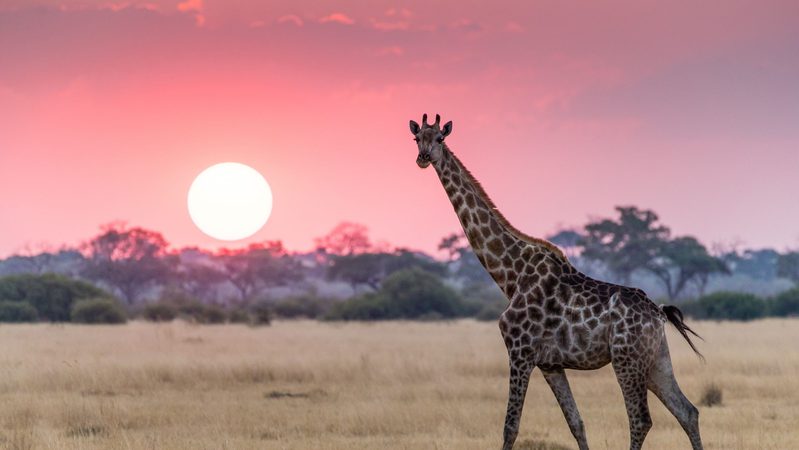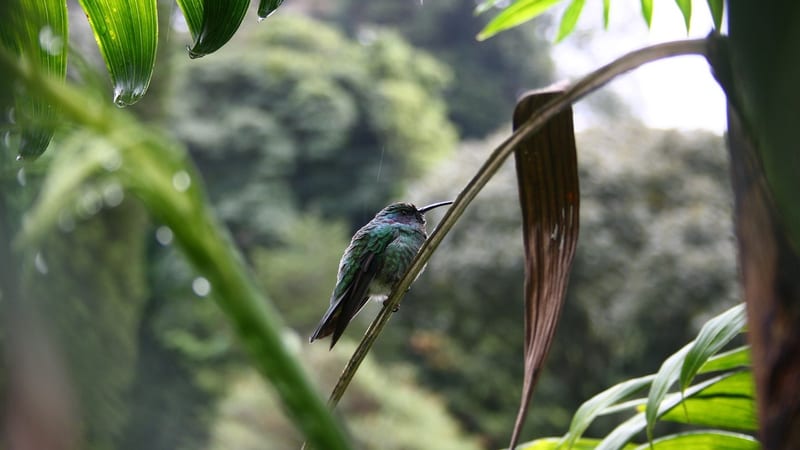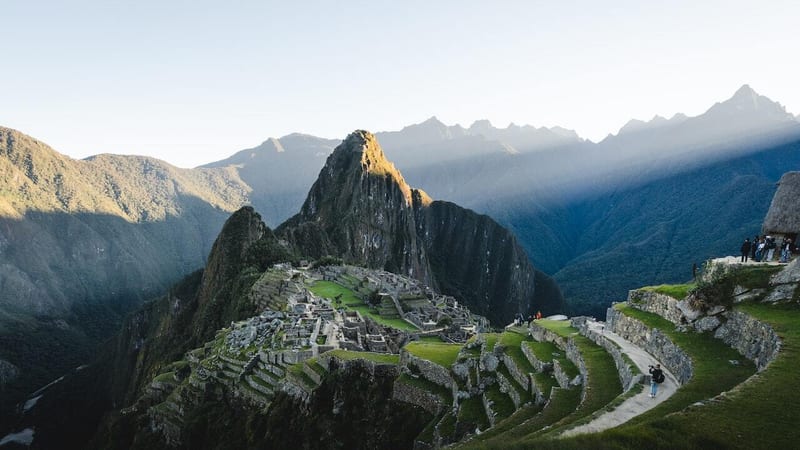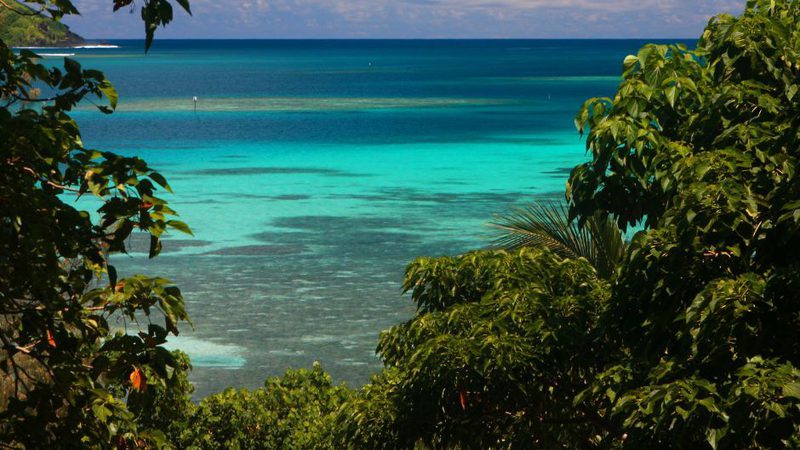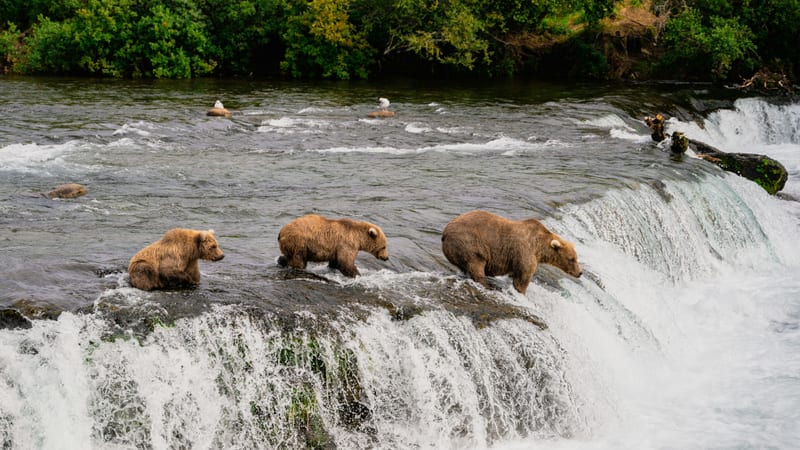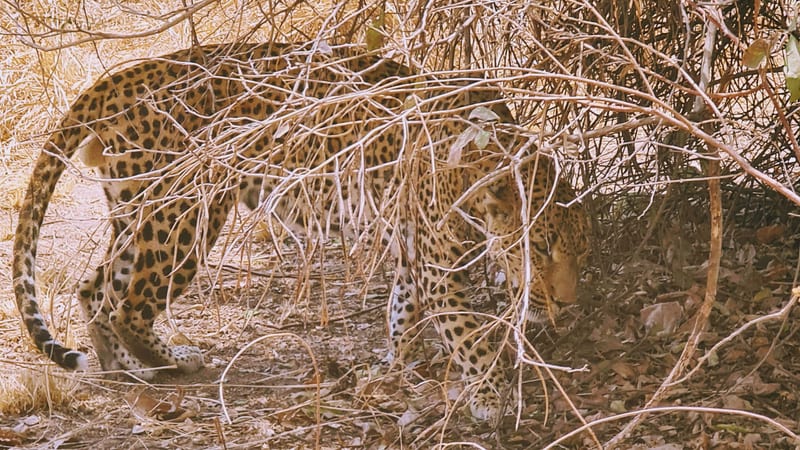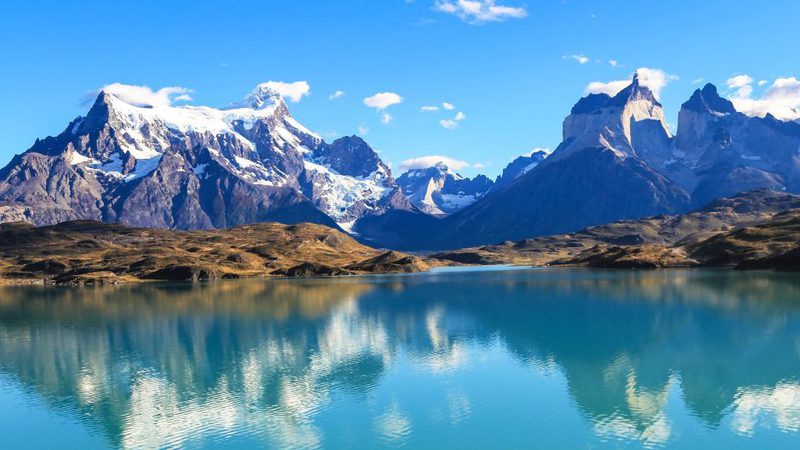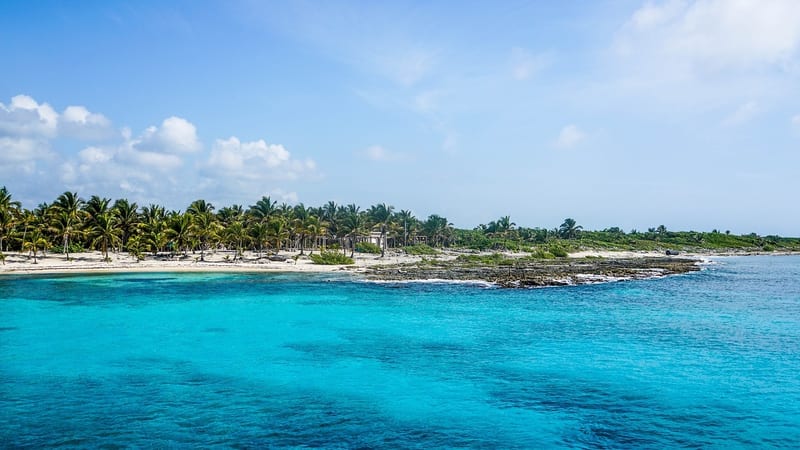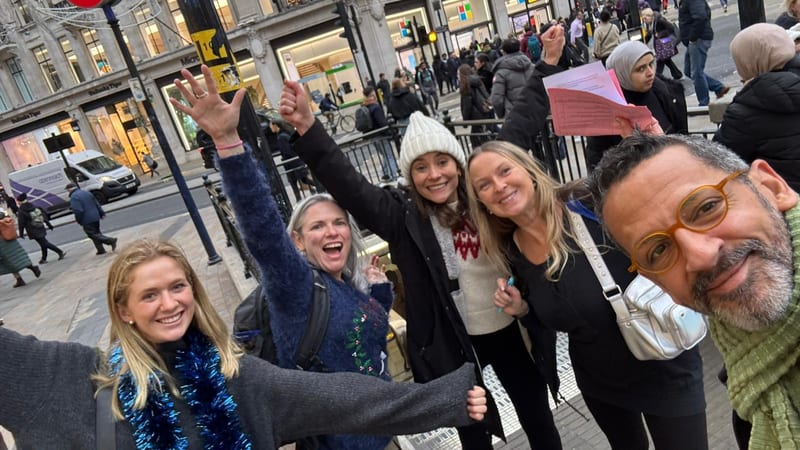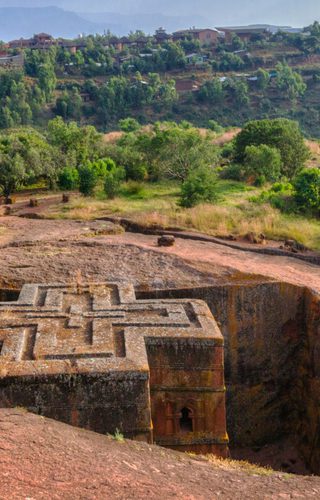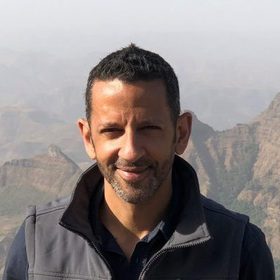Best time to go to Ethiopia
One of the great joys of Ethiopia is that it is a true year-round travel destination, with the weather allowing visitors to travel all year but also something interesting and unique happening each month, meaning that whenever you travel you will get an intriguing glimpse into Ethiopian life.
Below is a short summary of the best times to visit or scroll to the bottom for a full month by month guide.
Peak season is November to March when it is cooler and mostly dry meaning you can access all parts of the country easily. January is a popular time due to the world-famous Timkat festival.
Low season: June to August is the wet season when walking or visiting the south of Ethiopia can be challenging.
Notable festivals: There are a number of notable festivals throughout the year including Timket (January), bull jumper ceremonies in the Omo Valley (March), Fasika or Ethiopian Easter (April), Kiddus Yohannes or New Year’s Day (September) Meskel (September) and Festival of Maryam Zion in Axum (November)
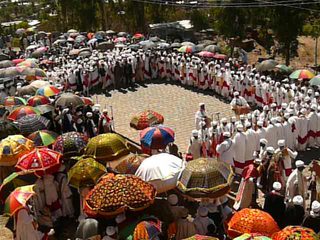
January in Ethiopia
Cool and dry, January is one of the most popular months to travel to Ethiopia, not least because of the key religious festivals that take place. As Ethiopia operates on the Orthodox calendar their key festivals are “staggered” somewhat from ours, with Genna (the equivalent to Christmas but more subdued) taking place on the 6th and 7th January, whilst Timkat, arguably the best-known and most popular festival to witness, takes place on the 19th January. Both festivals are one day later during leap years.
Timkat pictured.
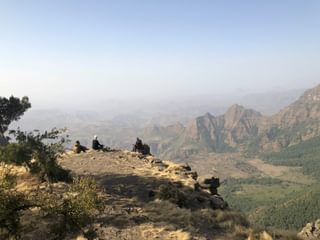
February in Ethiopia
Arguably the peak month to visit Ethiopia, when conditions are at their warmest and driest, the whole country is busy during February. Naturally, the conditions are ideal for visiting the key religious sites of the North and for exploring the Omo Valley to see the tribespeople. More specific interests that can be pursued at this time include the chance to see over a million white-eared kob migrating through the Gambela National Park from Sudan in the far West of the country. It is also an ideal time for trekking, especially for those who are looking to reach the summit of Mount Dashen, Ethiopia’s highest peak, in the Simien Mountains National Park.
Simien Mountains pictured.
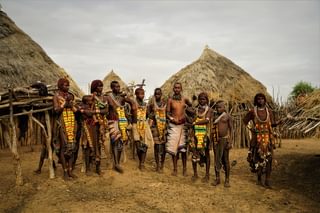
March in Ethiopia
As the dry season comes to an end, this is an excellent time of year for wildlife viewing, especially in the Simien and Bale Mountains National Parks. March is also the time when the Hamer people, one of the most celebrated tribes in the Omo Valley, have their traditional bull jumping ceremonies, part of the transition of young men from boyhood to adulthood.
Hamar Tribe in the Omo Valley shown.
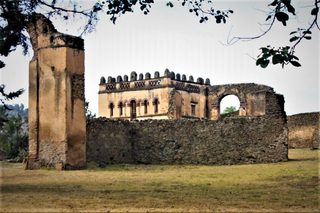
April in Ethiopia
For visitors who can endure a little rain, April is an excellent month to travel, with much lower visitor numbers, especially in the more popular places such as Gondar and Lalibela. This is also the month where they celebrate Fasika, or Ethiopian Easter, with the date changing each year and in line with when we have our Easter, albeit a little later. As Easter Sunday starts, you will be able to see hundreds of pilgrims, adorned in white robs, praying in church grounds in the moonlight.
Gondar Palace shown.
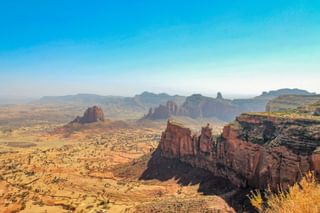
May in Ethiopia
As the rains arrive in earnest, much of the South of the country becomes impassable, so visits to the Omo Valley aren’t possible. The North still sees bright spells throughout the day and lower visitor numbers mean that this can be a rewarding month to travel.
Tigray in the north pictured.
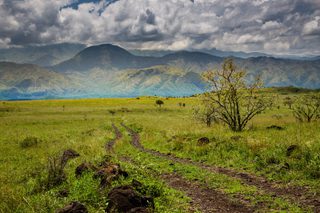
June, July & August in Ethiopia
Amongst the most challenging times to visit Ethiopia, rains can be heavy throughout the country, making days out in the open visiting the religious sites somewhat of a challenge.
This is the green season in Ethiopia.
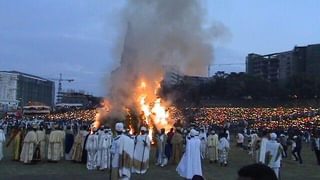
September in Ethiopia
The rains start to subside as September arrives and Ethiopia embraces the improving weather with two key celebrations. Kiddus Yohannes (New Year’s Day) is one of the more informal of their celebrations, taking place on the 11th of September, and sees families come together and present one another, especially the children, with gifts. Meskel, the Festival of the True Cross, takes place on the 27th September and is amongst the most spectacular of their festivals. As with the January festivals, all celebrations are one day later in leap years.
Image of Meskel Festival.
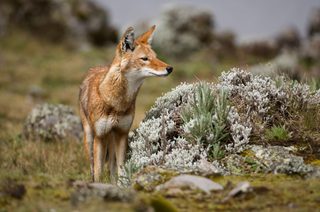
October in Ethiopia
The legacy of the summer rains leaves a lovely tinge of green across the whole country, so views are spectacular, but the drier conditions mean that it is an ideal time of year for exploring. An especially rewarding time of year for birders, particularly in the Omo Valley and Bale Mountains, this is when many keen ornithologists choose to travel.
Ethiopian wolf in the Bale Mountains.

November in Ethiopia
A hugely popular time of year to travel as the dry weather has really set in, meaning that the whole country is accessible and thriving. The Bale Mountains are especially popular at this time of year and we recommend booking more than a year in advance to secure your space. Axum also sees the celebration of the Festival of Maryam Zion, a unique localised event which takes place on the 30th November. This is also the month when Ethiopia’s deep affinity with, and success in, long-distance running is celebrated with the Great Ethiopian Run. Taking place on the penultimate Sunday of November and co-ordinated by the great Haile Gabresellasie himself, arguably the most famous distance runner of all time.
Image: walking in the Bale Moutains.
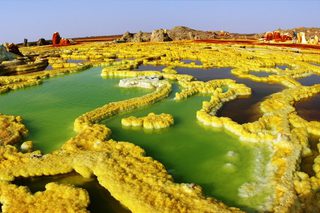
December in Ethiopia
Another prime month to visit the whole country, the cooler temperatures mean this is the start of the relatively short (4 month) season when one can visit the Danakil Depression in reasonable comfort. In general it is a great time of year for trekking, with the Simien Mountains and TESFA Treks in both Lalibela and Tigray proving very popular throughout December.
Danakil Depression pictured.
Ethiopia Trip Ideas
Speak to a Ethiopia expert today
and start planning your tailor-made holiday

Alistair


